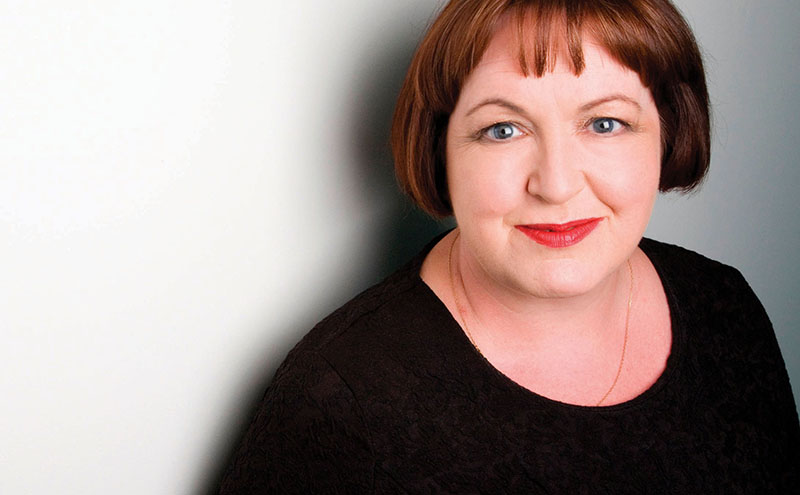
LESLEY McLeod wants to ensure that health and safety “stays right at the front of people’s minds, both in the industry and to those people who are formulating the regulations,” in her new role as CEO of the Association for Project Safety (APS).
Founded in 1995, Edinburgh-headquartered APS is a professional membership organisation offering guidance and support to its members on all aspects of construction health and safety risk management. The organisation’s membership currently stands at over 5,000.
“This is about making sure that when you are building something you plan to make it safe, you do it safely and then it can be decommissioned safely,” Lesley told Project Scotland.
Bringing a wealth of experience in communications to the role, Lesley joins APS after holding the post of board director, communications and public affairs at Energy UK.
Lesley also has over a decade of frontline politics experience in various Whitehall departments, including the Home Office and the Treasury, and prior to joining Energy UK, was board director, communications and public affairs for the British Bankers Association.
Lesley explained her decision to join APS, “It seemed like a logical career move that I could move to an organisation where I could use the skills that I had to try and speak more directly to the members that we have.”
Lesley continued, “This is a more diverse individual membership than the organisations that I had been part of before but I had acquired a lot of skills on how you get a message out to a membership organisation and then represent their views back to agencies of government, in this case the HSE, and get their core message across, which, of course, is to make sure that people working in the construction sector are able to build long-term health and immediate safety aspects into the build of any project.
“My skills are getting that message across and then communicating both to and from the membership to try and help them develop as well, through continued professional development.
“The organisations that I’ve worked for before always had a training aspect to them to help members keep up with their professional skills so that was something that attracted me… and actually working somewhere where there was a core team of really hardworking staff to help get that message out more effectively, both to the members on one side and to the stakeholder group that they wanted to talk to; I thought that was something that I would be well placed to do.”
Lesley explained that she wants to see a reduction in both the number of people injured in the construction industry and long-term health effects.
“Health and safety has a real impact on real people’s lives. If you’re talking about strange financial instruments across international markets it’s very hard to see how that’s got any real bearing on real people’s lives, but this has got an immediate effect.”
Lesley thinks that there is a perception in the construction industry that health and safety is “unnecessary mollycoddling a lot of the time” but people need to “get over the fact that this is not us trying to put unnecessary barriers in the way”.
“This is about real people and real people’s lives and the profound impact it can have on people if you don’t do it right; so, do it right, do it effectively so that people can come home safe.
“We have a vast regional network and we have a large number of members so the immediate thing we have got to do is to make sure we listen to them and make sure that we support them adequately in their day-to-day work so that they’re properly trained, so they have good continuous development, so that we keep them abreast of anything that is happening in the sector but, crucially, we also make sure that they know any of the implications of new legislation and regulations on them.
“The listening part is making sure when legislators are putting things in place, we are able to say at a sensible point in that development ‘this is how it will work on the ground’, so that we can either make sure the regulations are effective or where we see an unintended consequence in some other form of development we can say ‘hold on a minute, we want to influence this now’.”
Speaking on the issue of potentially imposing harsher fines on firms, Lesley commented, “As an organisation, we’re not going to stand here and say that everything is perfect and that all of our members are perfect and we do not advocate anybody cutting corners. However, you’ve got to look at what the consequences of imposing harsher fines on particularly the small end of the industry might be.
“That’s one of these areas where there might be unintentional consequences.
“For example, if they were a small operator and they have to pay a large fine, they might then have to cut back on something else. It is much better, I think, in the long-term to work with people constructively to make sure they do it right so that they don’t have to be fined in the first place.”
Speaking on APS’s work going forward, Lesley explained, “We’ve just written to the Secretary of State for Communities and Local Government off the back of the speech he gave at the Conservative Party conference where he was talking about the need for housing and a rapid and vast expansion in the housebuilding programme. He said it was important to build quickly and he wanted things to be pretty.
“He didn’t say we need to build it fast but we need to make sure it’s safe, so we have written to him to say our members are all in favour of building but you can’t make it pretty at the expense of making it safe. We have started that dialogue.
“There’s an all-party group on construction at the Scottish Parliament so we will be engaged with them (and) we will be talking to other organisations within the construction sector to make sure that we actually try and tie everything in at a point where it is effective and not costly.”








